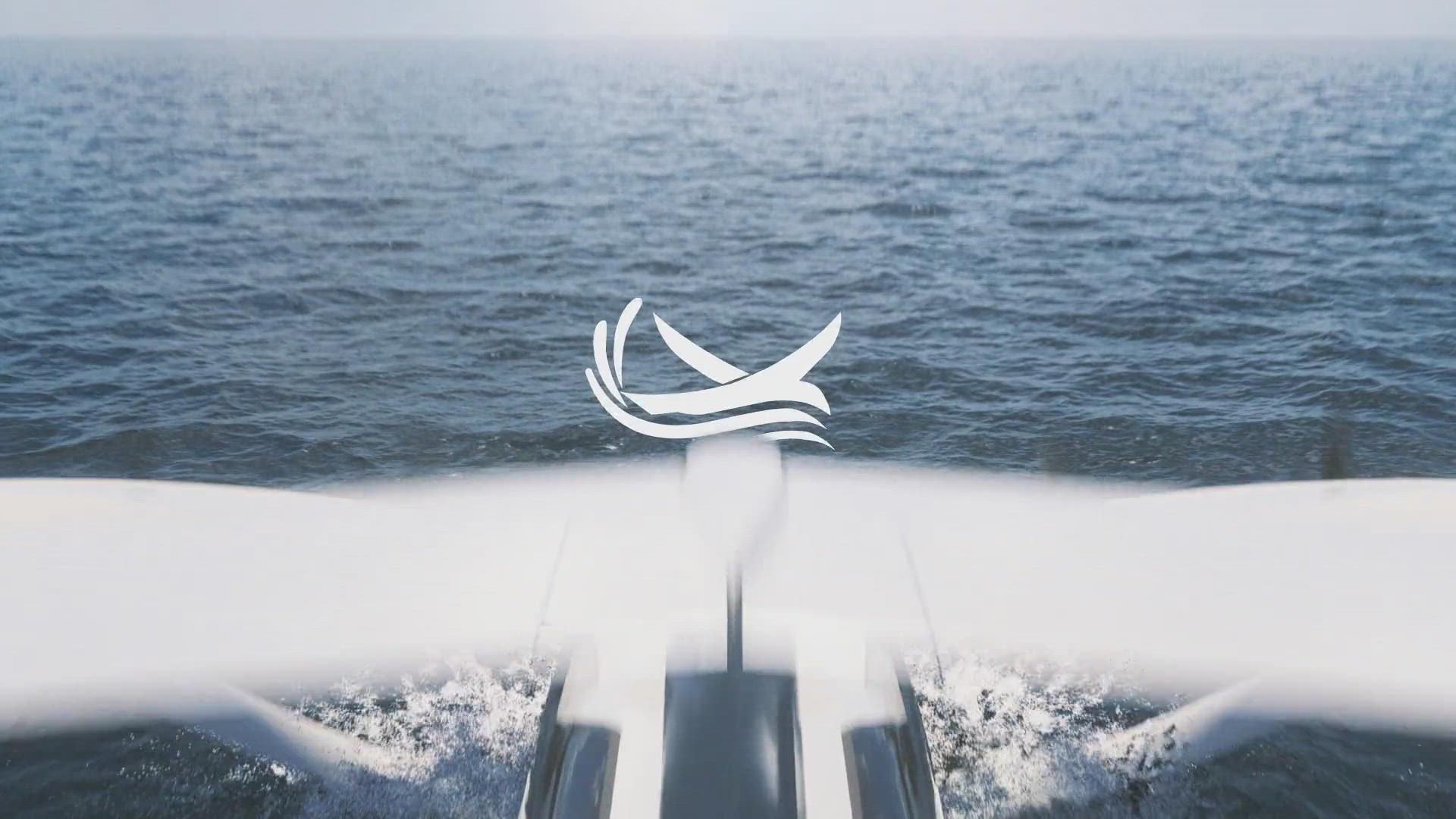TAMPA, Fla. — About a century ago, the world's first scheduled passenger airline service flight took off from St. Petersburg. It was bound for Tampa and made history as a glimpse of the technological advancements to come.
Now, a little more than 100 years since that groundbreaking flight, the next advancement in commercial aviation may be coming to the same region. An aerospace company announced Thursday that it was choosing Tampa as a testing city for the first scale-model of its new all-electric seaglider.
REGENT plans to do demonstrator flight testing in early 2022. Developers say the seaglider combines the speed and comfort of a plane with the affordability and maneuverability of a boat. They intend for the technology to enter commercial service in Florida by 2025.
The venture-backed business envisions its electric seagliders providing harbor-to-harbor overwater transportation in a more cost-effective, lower noise and environmentally-friendly manner than offered through existing transportation services via planes and ferries. The company says the vehicles will be able to move commercial passengers and cargo as far as 180 miles at nearly 180 mph. Next-gen batteries will one day carry it up to 500 miles on a single charge, REGENT hopes.
“Our technology demonstrator is built to fully perform end to end capabilities of float, foil, and fly," REGENT CEO Billy Thalheimer wrote in a statement. "We are excited to announce more details of the technology demonstrator vehicle in the coming months.”
As for why Tampa was chosen, the company cited the region's weather and "favorable maritime conditions." REGENT specifically credited Mayor Jane Castor and her emphasis on "bringing innovation" to the city.
"We are thrilled to welcome REGENT to Tampa for seaglider testing,” Castor wrote in a statement. “Tampa has always been a city built around innovation, and REGENT’s zero-emission, climate-friendly vehicle is the exact type of company we want to support in our ecosystem."
If all goes well, Castor said Tampa wouldn't just test the demonstrator but also become one of the company's first coastal routes when the seagliders enter regular service in a few years.
"In 1914, the world’s first commercial aircraft took off from Tampa Bay," Castor said. "We’re excited to continue our innovative heritage and host the world’s first seaglider tests in 2022.”
The seagliders will be regulated and certified by maritime authorities, REGENT said.


So how will it work? Here's exactly what the company tells us:
"Leveraging existing dock infrastructure, REGENT’s commercial seaglider will FLOAT, FOIL, and FLY. From the dock and while in the no wake zone, the vehicle will float on its hull. Upon reaching 20 mph, it will rise up on its retractable hydrofoil. Hydrofoils offer significant wave tolerance and enhanced passenger comfort as the vehicle leaves the crowded city harbor at speeds between 20-40mph.
"Upon reaching open water, the vehicle smoothly transitions onto its wing, retracts the foil, and accelerates to a comfortable 180-mph cruise speed -- all while staying within a wingspan of the water’s surface. Flight safety at these altitudes is achieved utilizing a multiple-redundant, state-of-the-art navigation and control system. Similar to a hovercraft, seagliders fly on a dynamic air cushion created by the pressurized air between the wings and the water. The aerodynamic advantage of this so-called 'ground effect,' includes significant operational efficiencies, increased payload capability, and greater range."

